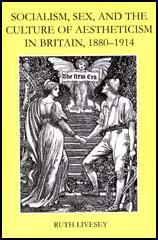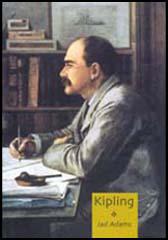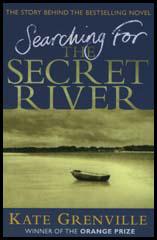Spartacus Review
Volume 5: 4th November, 2007
British Literature

Title: Socialism, Sex, and the Culture of Aestheticism in Britain, 1880-1914
Author: Ruth Livesey
Editor:
Publisher: Oxford University Press
Price: £30.00
Bookshop: Amazon
Spartacus Website: Walter Crane
Category:
This book brings to life the growth of the socialist movement among men and women artists and writers in late nineteenth-century Britain. For these campaigners, socialism was inseparable from a desire for a new beauty of life; beauty that also, for many, required them rejecting the sexual conventions of the Victorian era. From the early 1880s and well into the twentieth century, the efforts of these writers and activists existed in critical tension with other contemporary developments in literary culture. Livesey maps the ongoing dialogue between socialist writers like William Morris, decadent aesthetes such as Oscar Wilde and defining figures of early modernism including Virginia Woolf and Roger Fry. She concludes that socialist writers developed a distinct political aesthetic in which the love of beauty was to act as a force for revolutionary change. The book draws on archival research and extensive study of socialist periodicals, together with readings of works by writers including Morris, Wilde, Schreiner, George Bernard Shaw, Isabella Ford, Carpenter, Alfred Orage, Woolf and Fry. Livesey uncovers the lasting influence of socialist writers of the 1880s on the emergence of British literary modernism and by tracing the lives of neglected writers and activists such as Clementina Black and Dollie Radford, she provides a vivid evocation of an era in which revolution seemed imminent and the arts a vital route to that future.

Title: Kipling
Author: Jad Adams
Editor:
Publisher: Haus Publishing
Price: £9.95
Bookshop: Amazon
Spartacus Website: Rudyard Kipling
Category:
Joseph Rudyard Kipling (1865-1936): short storywriter, author and poet, but also imperialist, racist, misogynist, and sexually confused? Kipling's life and experiences spanned exhilaration (growing up in India during the Raj) and cataclysm (losing his only son in World War I). He has been vilified as an imperialist and racist; his work considered 'politically incorrect'. Yet, he is one of the few, if not only, writers of the time to describe his world in exacting, caring detail - to tell us of 'the little man', whether private soldier, sailor or a poor native boy. Having lived a charmed early childhood in India and experienced a rather more horrid existence in foster homes and boarding schools as a boy, Kipling's early years equipped him with an imagination that allowed him to create such ever popular children's classics as The Jungle Book and Just So Stories for Children. Perhaps because his poetry was more straightforward and easily understood in a single reading, critics have not bothered to analyse it for hidden meaning and warning, looking for the irony behind the simple language he used. If he was truly a champion of British Imperialism, why would he turn down a knighthood and the position of Poet Laureate, yet accept the Nobel Prize for Literature in 1907? Is Kipling the Man as simple to understand as his work or is there complexity hiding under the veneer? Would a committed patriot and imperialist pen lines such as 'If any question why we died, Tell them, because our fathers lied.' ('Common Form', 1919). This new biography sheds light on the man and places him in context as a sensitive artist of his time.

Title: Searching for the Secret River
Author: Kate Grenville
Editor:
Publisher: Canongate
Price: £8.99
Bookshop: Amazon
Spartacus Website: British Writers
Category:
Kate Grenville's "The Secret River" was one of the most loved novels of 2006. Shortlisted for the Booker Prize and awarded the Commonwealth Writer's Prize, the story of William Thornhill and his journey from London to the other side of the world has moved and exhilarated hundreds of thousands of readers. "Searching for the Secret River" tells the story of how Grenville came to write this wonderful book. It is in itself an amazing story, beginning with Grenville's great-great-great grandfather. Grenville starts to investigate her ancestor, hoping to understand his life. She pursues him from Sydney to London and back, and slowly she begins to realise she must write about him. "Searching for the Secret River" maps this creative journey into fiction, and illuminates the importance of family in all our lives.
